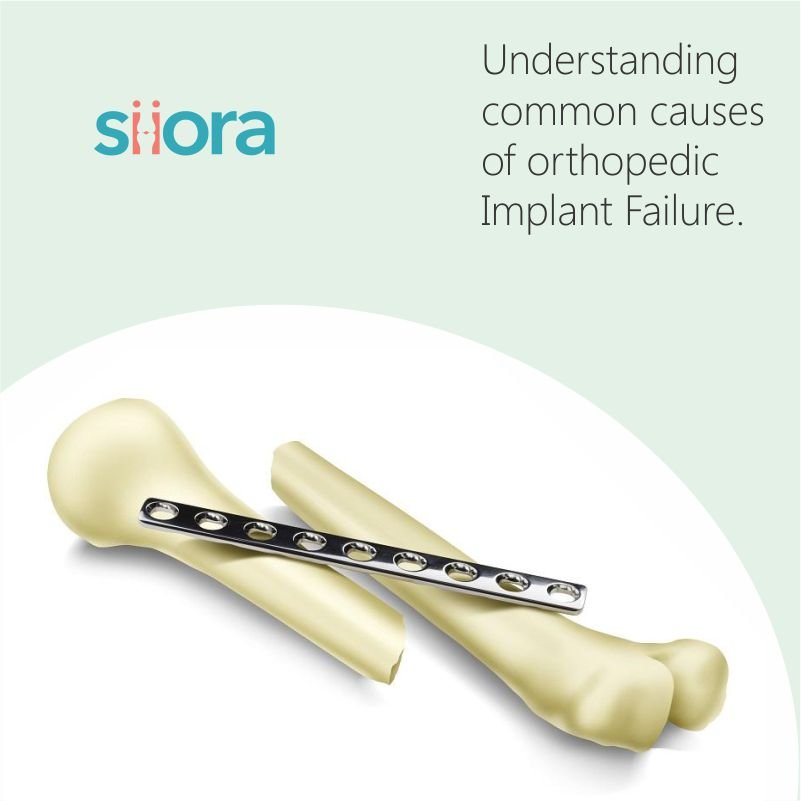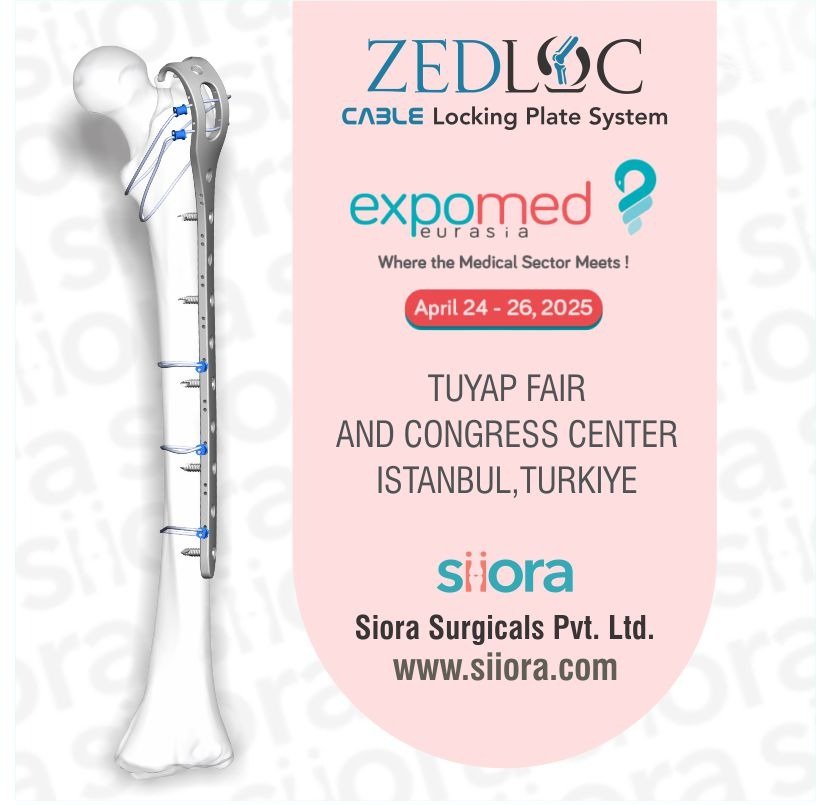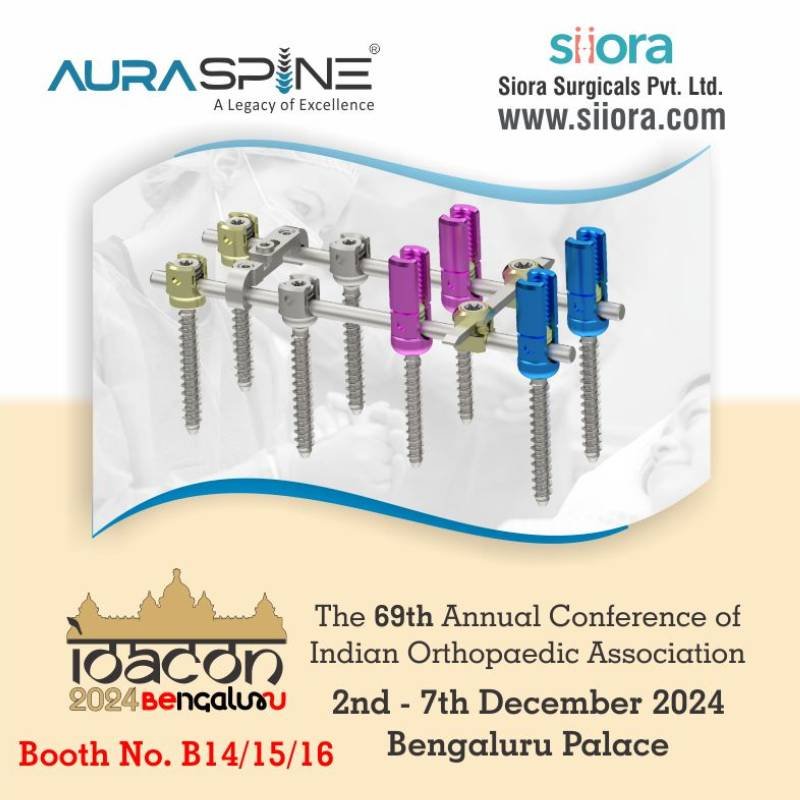Orthopedic implants have revolutionized modern medicine. It offers patients a path to restored mobility and pain relief. From joint replacements to fracture fixation devices, these implants play a crucial role in improving lives. Despite the continuous advancements in the orthopedic industry, we cannot sideline implant failure. However uncommon, such events may occur, and understanding their causes can help us minimize the risk. Implant failure can cause pain, instability, and the need for further surgery.
Understanding the common causes of implant failure is important for both patients and healthcare professionals. This helps minimize the risk and ensure optimal outcomes. In this blog, we will delve into the major culprits behind implant failure and explore strategies for prevention.
What Causes Orthopedic Implant Failure?
There could be several reasons that could result in the failure of an orthopedic implant. Let us discuss the ones that need to be addressed the most:
Infection: A Persistent Threat
Infection is a serious complication in any surgery. This could occur during orthopedic procedures as well. Bacteria can enter the surgical site during the implantation process or even travel through the bloodstream from another part of the body. If such a condition occurs, the implant may fail or a re-surgery may be required to prevent worsening the situation.
Symptoms of implant infection can include
- Increased pain and redness around the implant site
- Fever and chills
- Drainage from the incision
- Loosening of the implant
Rigorous aseptic surgical techniques are required to minimize the risk of infection. This includes meticulous sterilization of instruments and the surgical environment, along with the use of prophylactic antibiotics before and sometimes after surgery.
Mechanical Issues: Breakage and Loosening
Trauma implants are designed to withstand significant stress, but under certain circumstances, they can break or loosen.
Breakage
Here are the several possible reasons for implant breakage:
Excessive weight-bearing: Putting too much strain on the implant before the bone has fully healed can lead to fracture.
Recurring trauma: A fall or other impact can damage the implant after the surgery or during the rehabilitation period, especially when the bone around it is weak.
Manufacturing defects: This is a very uncommon scenario but cannot be denied. Faulty implants can break under normal use. The best to prevent this is to find the best orthopedic companies in India.
Loosening
Over time, the interface between the orthopedic implant and bone can deteriorate. This is called aseptic loosening. This means it is not caused by infection. Factors contributing to loosening include:
Micromotion: Tiny movements between the implant and bone can cause wear and tear, leading to bone loss and loosening. These tiny movements can occur if the patient ignores immobilization during the healing or rehabilitation stage.
Wear debris: The constant friction between implant components can generate tiny particles that trigger an inflammatory response in the body, ultimately leading to bone resorption.
Bone quality: Patients with osteoporosis or other conditions affecting bone density are at a higher risk of loosening. To prevent this, pre-operative assessment is critical.
Surgical Technique and Implant Selection
The success of an orthopedic implant hinges on a skilled surgeon and the appropriate implant choice.
Surgical Technique
Improper implant placement or inadequate bone preparation can compromise stability and increase the risk of wear and tear. Surgeons with expertise in using specific implant types must be chosen for optimal outcomes.
Implant Selection
Choosing the right implant size, material, and design based on the patient’s anatomy and activity level is vital. For example, a younger, more active patient might require a different type of implant compared to an older patient with lower activity demands.
Other Contributing Factors
Patient factors
Certain medical conditions like diabetes and obesity can increase the risk of infection and delay/prevent bone healing.
Biocompatibility
While rare, some patients might have sensitivity to implant materials, leading to an inflammatory response that affects the implant’s integration with the bone. So, it is important to ask the patient if he/she is sensitive to any materials used in implant manufacturing.
How to Minimize the Risk of Orthopedic Implant Failure?
Here are several strategies that can be employed to minimize the risk of implant failure:
Pre-Operative Optimization
Addressing medical conditions like diabetes and optimizing bone health can improve surgical outcomes. Early assessment of osteoporosis or osteopenia in patients can also help surgeons choose the right implant for surgery. Newer and better implants are available for compromised bone qualities like orthopedic locking compression plates.
Precise Surgical Technique
It is very important to choose the right orthopedic surgeon based on the injury or orthopedic conditions. Do, consult with a few orthopedic doctors before finalizing. Selecting experienced surgeons adhering to strict aseptic practices is essential.
Patient Education and Compliance
Following post-surgical weight-bearing restrictions and rehabilitation protocols is crucial for successful bone healing and implant integration. The patient must be guided before and even after the surgery about what to do, how to do it, and what not to do.
Advancements in implant technology
New materials and designs are constantly being developed to improve orthopedic implant longevity and biocompatibility. Some of the examples are patient-specific trauma implants and biodegradable implants. Remember, advancement in the healthcare industry is a continuous process and it will keep improving treatment outcomes.
Conclusion
Orthopedic implants offer life-changing benefits for many individuals. While implant failure can occur, it’s relatively uncommon. By understanding the common causes and implementing preventive measures, patients and healthcare professionals can work together to achieve optimal long-term outcomes. If you have concerns about your orthopedic implant, consulting your doctor is vital for a proper evaluation and personalized guidance.
About Siora
A renowned orthopedic implant manufacturer in India, Siora Surgicals Pvt. Ltd. is a world leader in this industry. Serving for 30+ years, the company has established a reputable position in the global orthopedic market. With hundreds of implants and instruments under 20+ categories in its arsenal, Siora always keeps looking to expand its international market reach by finding new distributors. The company has an in-house manufacturing unit in India which gives it the strength to stay updated with the latest orthopedic technologies. Siora wants reliable distributors in the USA to be as a trustworthy trauma implants manufacturer in USA.







